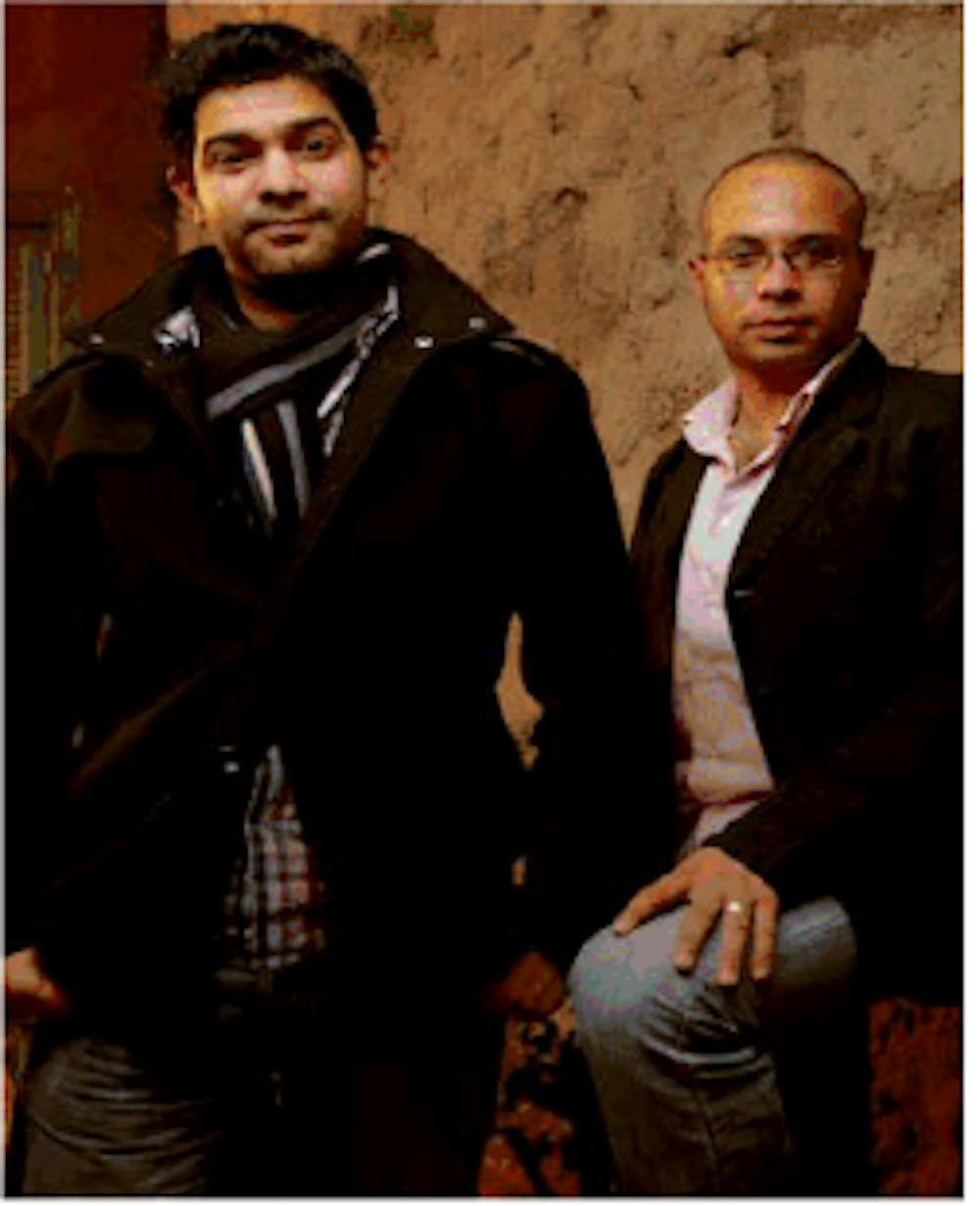Two Egyptians who played a major role in the revolution that removed former Egyptian President Hosni Mubarak from power this spring spoke at AU Oct. 20 and 21 about their experiences in the revolution.
Ahmed Maher and Waleed Rashed are co-founders of the April 6 Youth Movement, an organization that formed as a Facebook group in spring 2008 to help workers go on strike in the industrial city of al-Mahalla al-Kubra. The group gained a large following and proved to be instrumental in organizing the spring 2011 Egyptian revolution.
Both speaking events, held in the School of International Service Founder’s Room, drew near-capacity crowds and were highly interactive as Maher and Rashed fielded questions from the audience throughout the event.
“We love these kinds of meetings better than the formal, diplomatic meetings,” Rashed said. “Whatever comes in your mind, please ask. No limits.”
Maher and Rashed did not hesitate to share their candid thoughts, which included their dissatisfaction with the rule of Egypt’s Supreme Council of the Armed Forces, a body of senior officers in the military who took power once Mubarak resigned.
“To be honest with you, I think we made a big mistake when we left Tahrir Square in the 11th of February,” Rashed said, referring to the date Mubarak officially resigned from office.
Abdalla Hussein, a native Egyptian and senior in SIS, attended the Oct. 20 event and expressed similar views about the country post-Mubarak.
“I’m not content with the pace [of change],” he said. “But then again, I always knew that we would go through bad days. During the revolution, we sacrificed stability for change, but change will take at least 10 years. It was the sacrifice we made, and we’re just paying the price now.”
Rashed attributed the current slow pace of change in Egypt to a culture that may be hard-pressed to evolve after having become accustomed to life under Mubarak.
“If you are planning to make a revolution in your country, the most important thing is, you’re supposed to study the mentality of your people,” Rashed said. “Mubarak is not a person, he is a culture.”
Maher and Rashed admitted that they didn’t have the answers to the multitude of challenges that remain in Egypt, including issues of security, water and food access and unemployment. But they believe activists need to continue to pressure the SCAF and work to change the mentality of the Egyptian people.
When a student at the Oct. 21 event asked if the revolution was finished, Maher responded by saying it will be finished when Egyptians are allowed to elect a new president through a fair election. But he quickly added, “That will take a very long time.”
A student at the Oct. 20 event asked about Maher and Rashed’s opinions of President Barack Obama and about how Obama seemed to be on the side of the revolutionaries. Maher was skeptical.
“They’re [the United States] now meeting with the SCAF and the SCAF have the same behavior as the Mubarak regime,” Maher said. “So I think that anger in the Middle East and Egypt will increase again against the United States. So I advise them to change their behavior.”
Maher and Rashed also talked about using social media, such as Facebook and Twitter, as one of many tools for the revolution. When they wanted to reach segments of the population that were not media-savvy, they got creative and used taxi drivers as another tool to market the demonstrations.
Egyptian taxi drivers are known for talking constantly to their passengers, and the movement took advantage of this by spreading the word of demonstrations to the drivers, Rashed said.
When the two speakers were asked how they adjusted once the Mubarak regime shut down Internet services to thwart their cause, Maher said the shutdown actually benefited them.
“All the families joined the demonstration to know what happened,” Maher said. “So they helped us to spread the demonstrations.”
“I really want to thank Mubarak,” Rashed added, evoking laughs from the audience.
The conversation turned somber when both spoke of the sacrifices they and their families had to make for their activism, which included being jailed and beaten.
But ultimately, the speakers acknowledged that the revolution was brought about by the tireless efforts of the Egyptian people themselves.
“We didn’t start the revolution,” said Rashed. “We were only a tool [in the revolution]. The revolution happened by Egyptians, because of Egyptians.”





